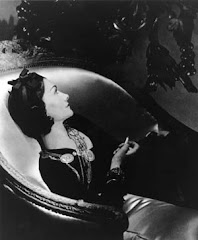From today's Guardian
I have just published another novel, The Clothes on Their Backs. And once more: I am not the child of timid Hungarian refugees, nor have I ever had a slum-landlord uncle. I did not grow up in a mansion block off Marylebone High Street. None of my relatives were survivors of second world war slave labour units. I did not have an early marriage that ended in disaster on the honeymoon. I am not a widow; I don't have two daughters. It is all a tissue of lies and invention.More than a decade ago, a literary editor sent me to interview the Irish novelist John McGahern, whose book The Dark was about sexual abuse. McGahern met me at the station and took me to his farmhouse in Leitrim. We sat outside on the porch before dinner and talked about writing. He discussed the function of the precise placing of the paragraph break. He described it as, "like tact, in conversation". When I got back to London, the literary editor said, "Didn't you ask him if he was abused?" I had finished the novel on the train to Leitrim, my heart hammering like an iron clapper against the ribs, and what the hell difference would it have made to me to know that sometime in the 40s the author had been fiddled with by his old dad? For such knowledge is the business of the peeping tom who looks through the cracks in drawn curtains at other people's privacy.
And why my intense irritation at this persistent, boring and inane insistence that fiction must be autobiographical? Because it reduces the imagination to material for journalism; it takes an axe to fiction. Such journalism tells me of the reading public's growing fascination with what it considers to be the authentic, the "misery memoir". Is the imagination now regarded as "spin"? For writers of fiction are what they are: those who make things up, who exaggerate, who cannot be trusted with the facts, whose inner world is more realistic than the one outside the window.

5 comments:
Just finished reading this at The Guardian online, and dashed over to say: Hear, Hear! 'bout bloody time, bravo,I agree etc....
Thank you.
Perhaps, in the spirit of the "Commumnty Reads" that are sweeping the US (in which a community reads and discusses a selected novel), we should mandate Roland Barthes' "Death of the Author" as an international read for everyone.
I love how he--and you--end with the reader, who brings meaning to any text and consequently makes meaning. *Making* fiction into autobiography, however, is counterproductive, and though while it could be seen as a compliment (a testament to how evocatively one can write), it's also dismissive (the book's personal history trumps its literary merits).
I had a similar experience of reading the "the dark"
Just finished "Clothes" and loved it.
I think the fiction/autobiography waters have also been made more murky by the recent "autobiographies" which turned out to be mostly fiction.
You try writing science fiction, for instance, and people won't assume it's autobiographical...
If they next start being condescending to you, then you can ask sweetly what kind of space alien they want to be in your next book.
Post a Comment